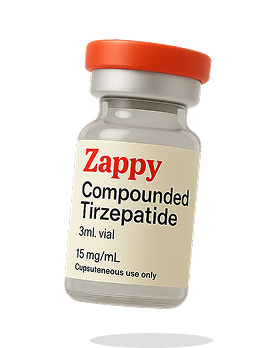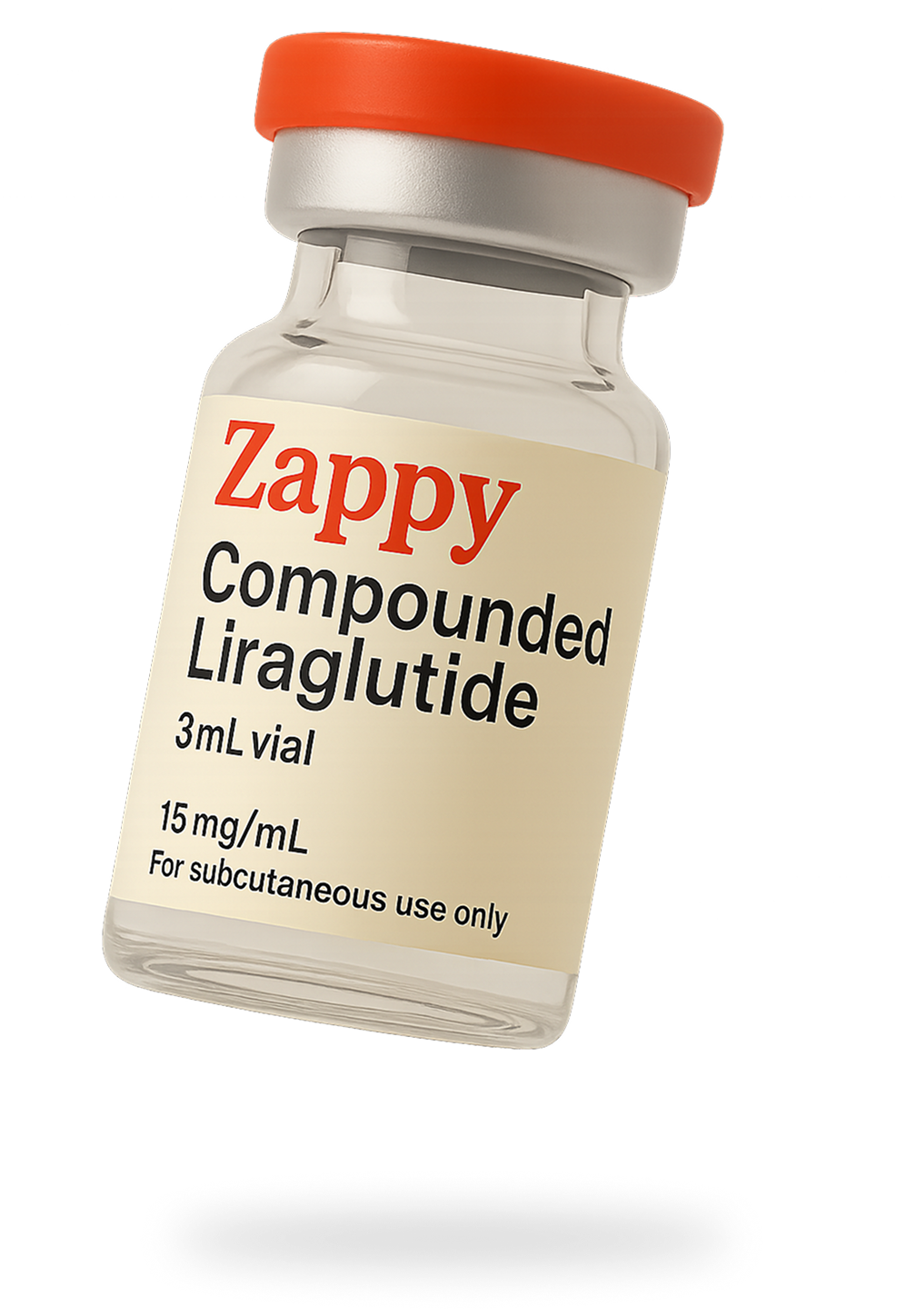Basic Understanding and Uses of GLP-1 Medications
-
What are GLP-1 medications?
- GLP-1 medications, or glucagon-like peptide-1 receptor agonists, are a class of drugs often used for the treatment of type 2 diabetes. They imitate the body’s natural GLP-1 hormone’s functions, such as stimulating insulin production, suppressing glucose production, and promoting a feeling of fullness.
-
Who can use GLP-1 medications?
- These medications are typically prescribed for adults with type 2 diabetes. Some types are also approved for adults struggling with weight management, such as those who are overweight with a weight-related health issue or are obese.
-
How it can help in weight loss?
- By slowing down gastric emptying and promoting a feeling of fullness, this medications can decrease food intake and have beneficial effects on glucose metabolism, aiding weight loss.
-
What is semaglutide?
- Semaglutide is a glucagon-like peptide-1 analog. It’s used for the treatment of type 2 diabetes and for reducing the risk of cardiovascular events in people with type 2 diabetes and cardiovascular disease. At a dose of 2.4 mg once-weekly, subcutaneous semaglutide is also approved for weight management in adults with overweight or obesity.
Benefits and Effects of Weight Loss
-
How does weight loss improve glycemic measures and triglycerides?
- Weight loss helps improve glycemic control by reducing insulin resistance, allowing the body to use insulin more effectively. This leads to lower blood sugar levels. Similarly, weight loss can lead to a decrease in triglycerides as the body uses up fat storage, resulting in better lipid profiles.
-
Can weight loss prevent the progression of type 2 diabetes?
- Yes, research has shown that even small amounts of weight loss can help prevent the progression of type 2 diabetes from impaired glucose tolerance. Losing around 10 kg can provide significant improvement in risk reduction.
-
What are the benefits of weight loss on blood pressure and cholesterol?
- Modest weight loss (5 to 10%) has been associated with improvements in both systolic and diastolic blood pressure, as well as HDL (good) cholesterol. This can potentially decrease the risk of cardiovascular disease.
-
How does weight loss affect patients with higher BMI levels (>40 kg/m2)?
- Even for patients with higher BMI levels (>40 kg/m2), the benefit in terms of risk factor improvement with modest weight loss is equal to that of those with lower BMI levels. The ability to lose the same proportion of weight with lifestyle intervention is also equal.
-
How does weight loss improve obstructive sleep apnea and non-alcoholic steatotic hepatitis?
- More weight loss is needed (around 10% to 15%) to see clinical improvement in comorbid conditions like obstructive sleep apnea and non-alcoholic steatotic hepatitis. The reduced weight can lessen the pressure on the respiratory system in sleep apnea, and can reduce fat content in the liver for non-alcoholic steatotic hepatitis.
-
What are the improvements seen in quality of life with weight loss?
- There is a graded improvement in measures of quality of life, including depression, mobility, sexual dysfunction, and urinary stress incontinence, whereby improvements are demonstrable with modest weight loss (5–10%) and with further weight loss there are further improvements.
-
How does weight loss affect polycystic ovarian syndrome and infertility?
- Modest weight loss (beginning at 2–5%) can bring improvements in menstrual irregularities and fertility, both of which are common concerns in polycystic ovarian syndrome.
-
How is weight loss associated with healthcare costs?
- Moderate weight loss (5–10%) has been shown to be associated with reduced health care costs. This is likely due to the reduced need for medication, hospital visits, and the prevention of obesity-related complications.
-
Can weight loss reduce mortality?
- Reduction in mortality may take more than 10% weight loss. However, definitive studies have not been done to demonstrate that weight loss per se is associated with mortality reduction.
Semaglutide & Other GLP-1 Medications
-
What were the results of the STEP 1 and 3 trials?
- In the STEP 1 and 3 trials, participants without type 2 diabetes saw an average placebo-subtracted weight losses of 12.4% and 10.3%, respectively, with semaglutide 2.4 mg at week
-
What are the side effects of semaglutide?
- Gastrointestinal adverse events, mostly mild to moderate, were reported more often with semaglutide than with placebo (82.2% versus 53.9% respectively). Always consult with a healthcare professional for personalized advice.
-
What should patients and healthcare professionals consider when using GLP-1 medications for weight management?
- It’s crucial to exercise caution when using GLP-1 medications for weight management. These medications should be coupled with an appropriate exercise regimen and dietary modifications to help maximize benefits and minimize potential risks. As always, individual medical advice from a healthcare professional is essential.
-
How do GLP-1 RAs work?
- Function by stimulating insulin release, delaying gastric emptying, and inducing a feeling of fullness. These effects contribute to glucose control and weight management. These drugs also provide protective and regenerative effects on pancreatic β-cells. Moreover, the impacts extend beyond the pancreas, affecting various tissues and contributing to their wide-ranging metabolic effects.
-
Are GLP-1 RAs recommended for all types of diabetes?
- Although findings are promising, so it’s not currently recommended for type 1 diabetes due to insufficient evidence. For patients with type 2 diabetes, especially those with high cardiovascular risk or intolerance to metformin, GLP-1 RAs are increasingly recommended as first-line therapy according to international guidelines.
-
What is the future outlook for GLP-1 RAs therapy?
- It has been proven safe and effective in multiple trials, showing promising results for improving both glycemic control and cardiovascular outcomes. They are now recommended for type 2 diabetes patients with high HbA1c, either alongside first-line therapy or even with insulin treatment. As ongoing research continues to explore the cardiovascular effects of GLP-1 RAs therapy, they stand poised at the intersection of diabetes and cardiovascular health, offering a holistic approach to disease management beyond just blood glucose control.
-
What potential downsides exist?
- According to longevity expert Peter Attia, weight loss with GLP-1 medications may not always be healthy if it significantly involves shedding lean mass. Some clinical trials suggested that lean mass accounted for a significant 39-40% of total weight loss when using GLP-1 agonists like semaglutide.
-
Are GLP-1 medications suitable for all individuals aiming for weight loss?
- While GLP-1 agonists may provide dramatic weight loss for overweight or obese patients, individuals without obesity may find the potential risks associated with reduced lean mass outweigh the benefits of fat loss. Special caution needs to be exercised in cases of sarcopenic obesity, particularly common in older populations, where further reductions in lean mass could pose a greater threat to health and longevity than the presence of excess fat.
-
How can one manage the potential downsides?
- Increasing weight-bearing exercise and strength training can help counteract losses in muscle and bone mass while using these medications. Moreover, a careful diet with sufficient protein intake can be key to mitigating lean mass loss, despite overall reductions in appetite and calorie intake brought on by GLP-1 agonists.
-
What’s the key takeaway regarding the use of GLP-1 medications for weight loss?
- While GLP-1 medications might seem like a ‘miracle’ solution for weight loss, it’s vital to consider their potential downsides. Physicians and patients need to exercise caution and discretion to determine if they’re truly the right choice for weight management. The focus should be on healthy weight loss, which ideally entails reducing fat mass while minimizing the loss of lean mass.
Usage and Monitoring of GLP-1 Medications
-
Can GLP-1 medications be used with insulin?
- Yes, these medications can be used alongside insulin under a healthcare professional’s guidance to avoid hypoglycemia.
-
Can I stop taking GLP-1 medications once I’ve reached my weight loss goal?
- The decision to discontinue these medications should be made in consultation with your healthcare provider as weight regain might occur after discontinuation.
-
How quickly will I lose weight on GLP-1 medications?
- Weight loss results vary among individuals; some may see results within weeks, while for others, it may take months.
-
Will I need to diet and exercise while taking GLP-1 medications?
- Diet and exercise are vital parts of a weight management plan. These medications work best alongside a balanced diet and regular physical activity.
-
What happens if I miss a dose?
- If you miss a dose, take it as soon as you remember. If it’s almost time for your next dose, skip the missed one and continue with your regular schedule. Never double dose to compensate.
-
How should clinicians approach weight management in patients?
- Clinicians should focus on health improvement, rather than a number on the scale. The individual patient’s targeted health goal should be assessed for response, rather than a prescribed percentage weight loss.
Safety and Side Effects of GLP-1 Medications
-
What are some common side effects of GLP-1 medications?
- Common side effects can include nausea, vomiting, diarrhea, constipation, and reduced appetite. These usually reduce over time as the body adjusts to the medication.
-
Are GLP-1 medications safe?
- Like any medication, GLP-1 drugs have potential risks and benefits. They have been proven safe and effective for their approved uses when taken as prescribed, but they are not suitable for everyone.
-
Can I take GLP-1 medications if I have kidney disease?
- While some of these medications may be used with caution in people with mild to moderate kidney disease, they are usually not recommended for those with severe kidney disease or kidney failure.
-
Do GLP-1 medications increase the risk of pancreatitis?
- Some studies suggest a small increased risk of pancreatitis, but the evidence is not conclusive. Always discuss potential risks with your healthcare provider.
-
Can GLP-1 medications cause hypoglycemia (low blood sugar)?
- While these medications alone do not typically cause hypoglycemia, when used in combination with other medications such as sulfonylureas or insulin, the risk can increase. Always monitor your blood sugar levels closely.
GLP-1 Medications and Special Populations
-
Can GLP-1 medications be used during pregnancy?
- Most of these medications are not recommended during pregnancy or breastfeeding. If you are planning to become pregnant or are already pregnant, talk to your healthcare provider about your medication options.
Lifestyle and Diet Considerations
-
Are there any foods or drinks I should avoid while taking GLP-1 medications?
- There are no specific foods or drinks that need to be avoided while taking these medications, but a balanced diet is recommended for optimal health and weight loss.
Clinical Trials and Studies on GLP-1 Medications
-
What was the STEP 5 trial about?
- The STEP 5 trial evaluated the efficacy and safety of a medication called semaglutide 2.4 mg versus a placebo for long-term treatment of adults with obesity, or overweight individuals with at least one weight-related comorbidity, without diabetes. The key goal was to observe changes in body weight and achievement of weight loss of ≥5% at week
-
What were the main findings from the STEP 5 trial?
- The results demonstrated that participants in the semaglutide group lost more weight on average than those in the placebo group (−15.2% vs −2.6% respectively from baseline to week 104). More participants in the semaglutide group achieved weight loss of ≥5% from baseline at week 104 (77.1% vs 34.4% in the placebo group).
Effects on Body Composition & Sarcopenia
-
What is sarcopenia?
- Sarcopenia is a syndrome characterized by the loss of muscle mass, strength, and function. While it’s often associated with aging, it can also occur in younger adults due to physical inactivity, malnutrition, and certain diseases. Symptoms can include weakness, loss of stamina, and poor balance, which can make everyday tasks difficult.
-
What is the connection between GLP-1 medications and sarcopenia?
- Some experts, such as longevity expert Peter Attia, have noted that a significant proportion of total weight loss when using GLP-1 medications, like semaglutide, might come from lean mass. This is not ideal, particularly for those already at risk of or suffering from sarcopenia.
-
How can patients avoid sarcopenia while using GLP-1 medications?
- There are two main strategies that can be helpful. The first is resistance training, which involves working against a force to build muscle strength and mass. The second is maintaining a high-protein diet. Consuming high-quality proteins can promote muscle health and recovery, especially when combined with resistance training.
-
Is loss of lean mass always a bad thing when losing weight with GLP-1 medications?
- For patients with obesity, some loss of lean mass might be an acceptable trade-off for substantial weight reduction. But for those without obesity using GLP-1 agonists for weight loss, the potential risks associated with reduced lean mass could outweigh the benefits of fat loss. For those with sarcopenic obesity, further reductions in lean mass could pose significant health threats.
-
What should patients and healthcare professionals consider when using GLP-1 medications for weight management?
- It’s crucial to exercise caution when using GLP-1 medications for weight management. These medications should be coupled with an appropriate exercise regimen and dietary modifications to help maximize benefits and minimize potential risks. As always, individual medical advice from a healthcare professional is essential.
Benefits of GLP-1 Medications in Cardiovascular Health
-
Why are GLP-1 receptor agonists (GLP-1 RAs) important for individuals with type 2 diabetes?
- This class of antidiabetic drugs, not only assist in managing blood glucose levels but also show potential in reducing cardiovascular and all-cause mortality. This is particularly important because individuals with type 2 diabetes often face an elevated risk for cardiovascular disease.
-
What benefits have been observed with the use of GLP-1 RAs?
- Numerous trials have established the safety of GLP-1 RAs. Drugs like semaglutide and liraglutide have been found to decrease cardiovascular events and mortality. Others, such as exenatide and liraglutide, are associated with decreased blood pressure, weight reduction, and improvements in dyslipidemia. Liraglutide also shows positive effects on improving blood circulation and cardiac remodeling after a heart attack.
-
What other benefits do GLP-1 agonists provide?
- Large trials reveal that these drugs can lower blood glucose levels more effectively than other treatments or placebos. Some, like lixisenatide, have shown non-inferiority to placebo in reducing cardiovascular events after a hospitalization for acute coronary syndrome or heart failure. Semaglutide has demonstrated a reduction in cardiovascular events, while liraglutide has exhibited neuroprotective effects, reducing cardiovascular events and mortality in certain patient groups.
-
How do GLP-1 agonists improve cardiovascular outcomes?
- GLP-1 agonists improve cardiovascular outcomes by modulating other risk factors like endothelial dysfunction, arterial blood pressure, dyslipidemia, and platelet function. For instance, exenatide and liraglutide have shown reductions in blood pressure, weight, and improvements in dyslipidemia. Liraglutide was also found to improve left ventricular ejection fraction in both diabetic and non-diabetic patients with a heart attack and slow the progression of left ventricle remodeling after the infarction.
-
What is the future outlook for GLP-1 RAs therapy?
- GLP-1 RAs have been proven safe and effective in multiple trials, showing promising results for improving both glycemic control and cardiovascular outcomes. They are now recommended for type 2 diabetes patients with high HbA1c, either alongside first-line therapy or even with insulin treatment. As ongoing research continues to explore the cardiovascular effects of GLP-1 RAs therapy, they stand poised at the intersection of diabetes and cardiovascular health, offering a holistic approach to disease management beyond just blood glucose control.
Body Composition and GLP-1 Medications
-
Why is body composition important when using GLP-1 medications?
- Body composition, or the balance between lean muscle mass and body fat, is vital when taking GLP-1 medications. These drugs, used to manage conditions like type 2 diabetes and obesity, can aid weight reduction but could also lead to a loss of lean mass, which includes muscle and bone. This could potentially reduce lifespan and result in poorer health trajectories.
-
What potential downsides exist with GLP-1 medications?
- According to longevity expert Peter Attia, weight loss with GLP-1 medications may not always be healthy if it significantly involves shedding lean mass. Some clinical trials suggested that lean mass accounted for a significant 39-40% of total weight loss when using GLP-1 agonists like semaglutide.
-
Are GLP-1 medications suitable for all individuals aiming for weight loss?
- GLP-1 medications are not suitable for all individuals seeking weight loss. These medications are designed primarily for individuals with type 2 diabetes or obesity. Their use should be under the guidance of a healthcare provider who can assess the potential benefits and risks. Moreover, anyone with a history of pancreatic disease, certain types of thyroid disease or tumors, or a history of severe gastrointestinal disease may not be suitable candidates for GLP-1 medications.
-
How can individuals ensure healthy weight loss while on GLP-1 medications?
- For those using GLP-1 medications, it’s important to pair them with a balanced diet and regular physical activity, especially resistance training, to help preserve lean mass. Monitoring body composition regularly can also provide valuable insights into whether the weight being lost is primarily fat or lean mass. Always consult with a healthcare professional for personalized advice.
Cardiovascular Risk in People with Obesity
-
What is the cardiovascular risk for people with obesity?
- People with obesity face higher cardiovascular risks. Obesity can lead to metabolic syndromes such as high blood pressure, diabetes, and dyslipidemia, which increase the risk of heart disease and stroke. Obesity is also linked to inflammation, which can contribute to the development and progression of atherosclerosis.
-
How can GLP-1 medications help reduce this risk?
- GLP-1 medications have been shown to help reduce cardiovascular risks in individuals with type 2 diabetes and obesity. They improve glycemic control and promote weight loss, which can have a positive impact on blood pressure, lipid profiles, and inflammation. Some GLP-1 agonists, like semaglutide and liraglutide, have been shown to decrease cardiovascular events and mortality.
Monitoring Body Composition
-
Why is it important to monitor body composition while using GLP-1 medications?
- Monitoring body composition while using GLP-1 medications can help ensure that weight loss primarily involves fat rather than lean mass. This is important because the loss of lean mass can have negative effects on health and longevity, particularly for those at risk of or suffering from sarcopenia.
-
How can body composition be monitored?
- There are several ways to monitor body composition. These include dual-energy X-ray absorptiometry (DXA), bioelectrical impedance analysis (BIA), skinfold thickness measurements, and underwater weighing. These methods vary in their accuracy, cost, and availability. Consult with a healthcare provider to determine the best method for your situation.
Considering Other Treatment Options
-
What other options are available for weight loss in individuals with obesity or type 2 diabetes?
- Apart from GLP-1 medications, there are several other treatment options for weight loss in individuals with obesity or type 2 diabetes. These include lifestyle modifications (such as dietary changes and increased physical activity), other classes of medications (like metformin for diabetes), bariatric surgery (for severe obesity), and behavioral therapy. The best approach often involves a combination of these methods, tailored to the individual’s specific needs and circumstances.
-
How does bariatric surgery compare to GLP-1 medications for weight loss?
- Bariatric surgery is typically reserved for individuals with severe obesity and can lead to significant weight loss and improvements in obesity-related conditions. While GLP-1 medications can also aid in weight loss and improve metabolic parameters, they are generally less effective than bariatric surgery for achieving large amounts of weight loss. However, surgery carries its own set of risks and considerations, and it’s not suitable for everyone. A healthcare provider can help determine which option might be most suitable.
Potential for Misuse of GLP-1 Medications
-
Is there a risk of misuse?
- As with any prescription medication, there is a potential for misuse with GLP-1 medications. This could occur if individuals without a medical need for these drugs use them for weight loss, which could lead to adverse effects, including excessive weight loss and loss of lean muscle mass. Therefore, GLP-1 medications should only be used under the supervision of a healthcare provider.
-
How can healthcare providers prevent the misuse?
- To prevent misuse, healthcare providers should educate patients about the proper use and potential risks of GLP-1 medications. They should only prescribe these medications to individuals who meet the criteria for their use (typically those with type 2 diabetes or obesity) and monitor patients’ progress and side effects closely. They should also emphasize that these medications are not a substitute for healthy lifestyle habits, including a balanced diet and regular physical activity.
Optimizing the Use of GLP-1 Medications
-
What are the best practices for using GLP-1 medications for weight loss?
- Best practices include using these medications as part of a comprehensive weight management program that also involves dietary changes, increased physical activity, and behavioral therapy. Regularly monitoring body composition can help ensure that weight loss is primarily due to fat loss. Healthcare providers should also monitor patients for side effects and adjust treatment plans as necessary.
-
Can GLP-1 medications be used long term for weight management?
- The long-term safety and effectiveness of GLP-1 medications for weight management are still being studied. While these medications have been shown to help maintain weight loss over a period of up to a few years, more research is needed to determine their effects over longer periods. As with any long-term medication use, potential benefits must be weighed against potential risks, and regular monitoring by a healthcare provider is essential.
Start Using GLP-1 Medication
At Zappy Health, we are dedicated to addressing obesity with a comprehensive and compassionate approach. Join us in creating a healthier future by availing Zappy Health’s expert care and support. Visit ZappyHealth.com to learn more and start your wellness journey today.
#ZappyHealth #WeightLoss #Semaglutide #GLP1Agonists #Type2Diabetes #Obesity #Healthcare #MedicationGuide #ClinicalTrials #HealthAndWellness #DiabetesManagement
Disclaimer: The information provided in this article is for educational and informational purposes only. It is not intended to replace or substitute professional medical advice, diagnosis, or treatment. Always seek the advice of your healthcare provider with any questions you may have regarding a medical condition, treatment options, or changes to your healthcare regimen. This list is not exhaustive and does not cover every possible question or situation. Your healthcare provider may have additional information or recommendations based on your individual circumstances.










